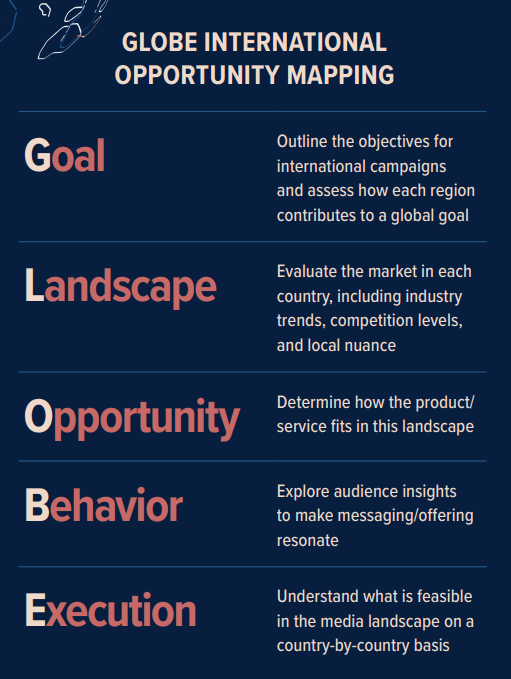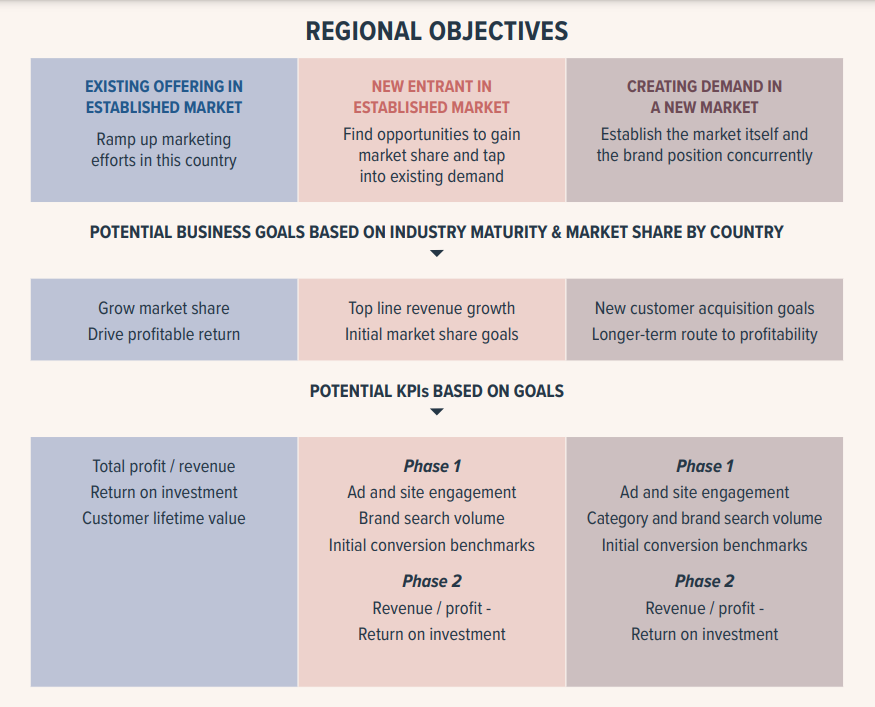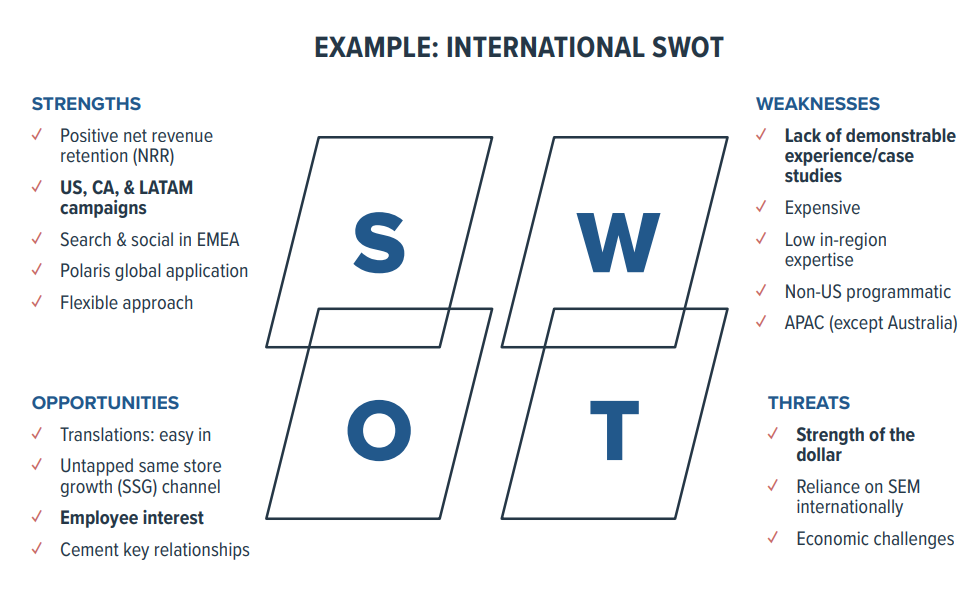Going Global: Take a Data-Driven Approach to International Expansion | WPROMOTE
Data-Driven Marketing
Venturing into new markets can pose challenges like language barriers and cultural differences. Our comprehensive guide offers a data-driven approach to international expansion, covering market understanding, strategy adaptation, key metrics definition, performance tracking, and audience insights for global success. Learn to make a compelling business case, identify lucrative market opportunities, and sustain success post-launch.
Evaluate the Global Opportunity
Whether you’ve identified a specific target market or are still considering options, the key to international expansion lies in determining what aligns with your business and aids in achieving overarching objectives.
Business Health
Timing plays a crucial role in international expansion. Recognizing opportunities is vital, but marketing leaders must also evaluate the health of the business before venturing into international waters. To assess potential opportunities, consider the following questions:
- Is there international demand for your product? Conduct market research to identify customers, competitors, and trends in potential target markets. If untapped market potential is found abroad, it may be an opportune time to expand.
- Is your domestic market saturated? If your business faces saturation or intense competition domestically, global expansion can diversify revenue streams and reduce reliance on a single market. Strong domestic performance can indicate effective operations management elsewhere.
- Is your company financially healthy? International expansion requires significant investment, including operations setup, staffing, marketing, and compliance with local regulations. Ensure your business has adequate financial resources or access to capital for the expansion.
- What’s your competitive advantage? Evaluate whether your business’s unique strengths can be leveraged in international markets. If your products, technology, or expertise provide a distinct edge over local competitors, global expansion is more likely to succeed.
- Do you have a scalable business model? If your business model is scalable and adaptable to different markets, replicating operations in new locations may be feasible. Modifications to align with local preferences, cultures, or regulatory frameworks are essential for success in new markets.
Business Objectives
To assess international opportunities effectively, align your plan with broader business goals. Conducting an internal audit, such as a SWOT analysis, facilitates exploration by:
- Identifying internal strengths
- Uncovering internal weaknesses
- Evaluating external opportunities
- Recognizing external threats Leveraging these insights aids in assessing your business’s readiness for expansion, understanding potential challenges and opportunities in foreign markets, and developing a comprehensive market entry strategy for global success. If you decide to proceed, initiate the process using Google Market Finder, a free service offering resources and guides to help businesses grow internationally. It assists in identifying suitable markets for your product or service and provides valuable insights to forecast demand.
Assess Potential New Markets
To determine the optimal market(s) for your brand, assess business goals against potential market conditions. Wpromote’s GLOBE strategy guides brands in exploring options and devising a strategic plan.
Goals
When contemplating global expansion, set both overall and region-specific goals. Global goals address the entire market, aligning with company-wide objectives. Regional goals necessitate evaluating the company’s position in each market to allocate resources effectively and tailor strategies.
Established players may scale marketing to widen their customer base, new entrants in established markets aim for brand awareness, and those entering unestablished markets need to build market presence, including audience education. Defining these goals aids in strategic decision-making and investment allocation across regions.

Leverage Google Trends to analyze search volume and interest in your category, brand, products, or services. Compare against competitors across regions, aiding in the identification of the optimal strategy.

Landscape
Thoroughly investigate a country’s economic and political landscape before expanding into a specific area. Examine historical and current affairs to gauge market stability. Evaluate political risks, considering conflicts and turmoil. Assess economic conditions over the past decade, including employment rates, GDP, and consumer purchasing power.
This diligence is essential to prevent regrets in expansion decisions. Ensure marketing contributes to the discussion, providing a comprehensive view of opportunities and risks.
Opportunity
After establishing goals and surveying the landscape, determining your company’s position in the target market is crucial. Utilize Google search data for insights into volume, maturity, efficiency, competitiveness, and growth trends in the chosen country.
Google Market Explorer is a valuable tool, that highlights growing markets and compares their sizes. Additionally, it allows the examination of Google search data for specific categories across countries.

The Table of Contents of “Going Global: Take a Data-Driven Approach to International Expansion” Guide:
- Evaluate the Global Opportunity
- Business Health
- Business Objectives
- Assess Potential New Markets
- Goals
- Landscape
- Opportunity
- Behavior
- Execution
- Global Growth Spotlight: KidKraft
- Launch and Learn
- Operational Model
- Continuous Optimization
- Global Measurement Framework
- Global Growth Spotlight: Dataiku
- Go Global: Getting Started
Number of Pages:
- 21 pages
Pricing:
- Free









